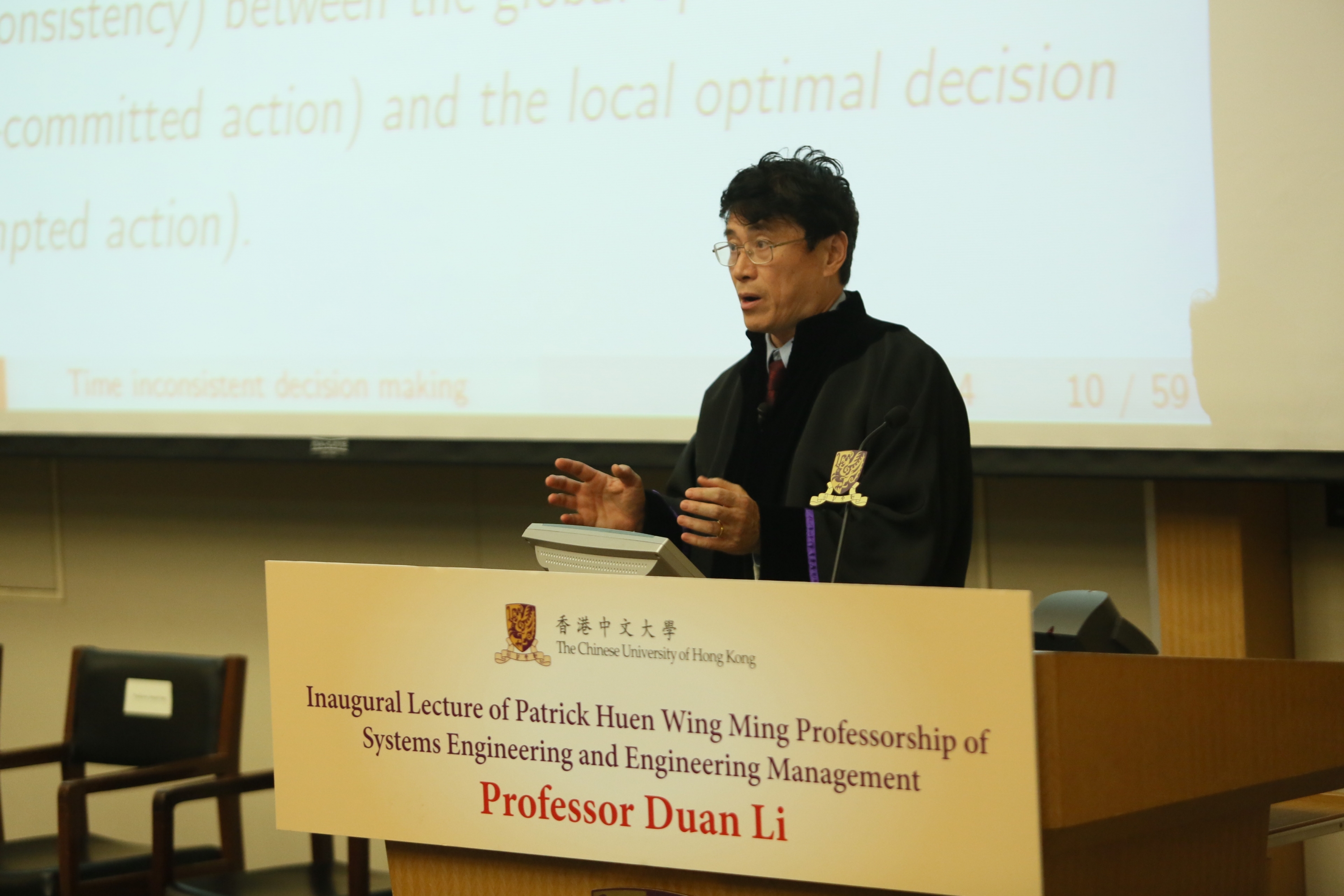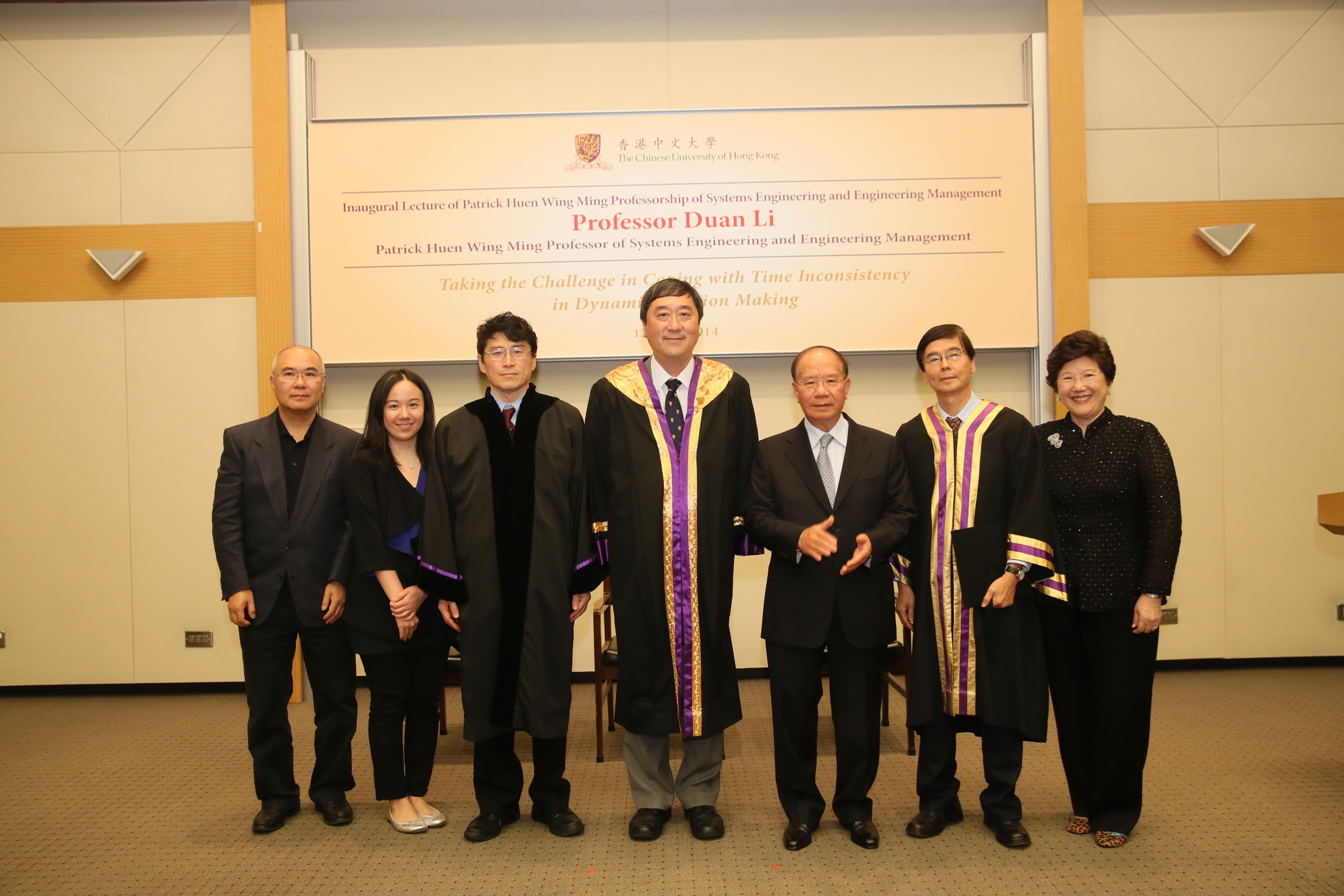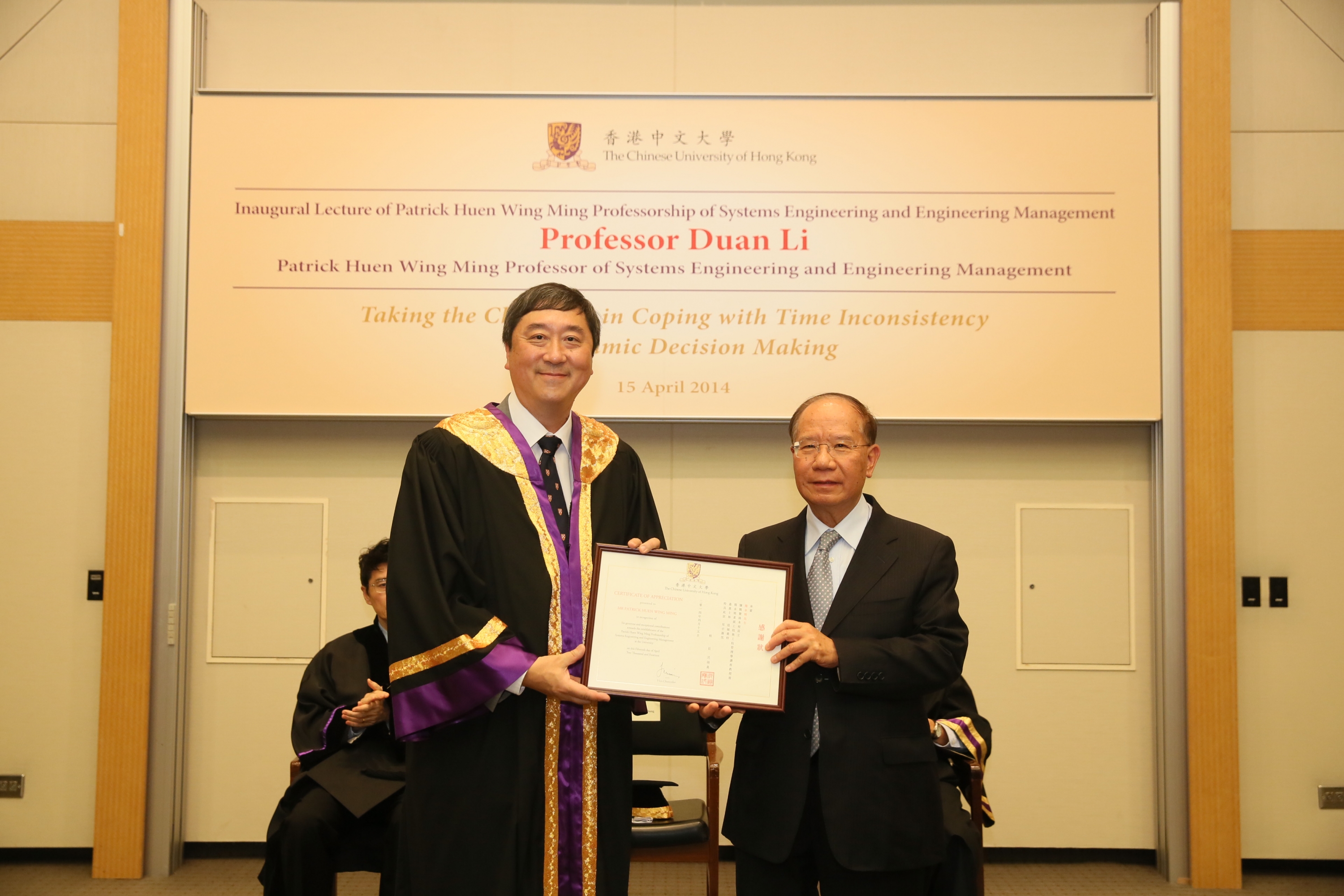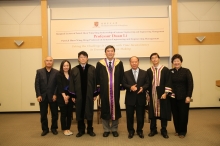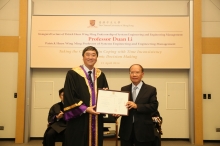CUHK
News Centre
Inaugural Lecture of Patrick Huen Wing Ming Professorship of Systems Engineering and Engineering Management by Prof. Duan Li‘Taking the Challenge in Coping with Time Inconsistency in Dynamic Decision Making’
Prof. Duan Li, Professor in Department of Systems Engineering and Engineering Management at The Chinese University of Hong Kong (CUHK), delivered his inaugural lecture today (15 April) as Patrick Huen Wing Ming Professor of Systems Engineering and Engineering Management on the topic ‘Taking the Challenge in Coping with Time Inconsistency in Dynamic Decision Making’.
Prof. Duan Li was born in Shanghai and graduated from the Department of Physics of Fudan University in Shanghai. He received his ME degree in Automatic Control from Shanghai Jiaotong University and PhD degree in Systems Engineering from Case Western Reserve University, Ohio USA. From 1987 to 1994, he was a faculty member at the University of Virginia, USA where he was an Associate Professor (Research) in the Department of Systems Engineering and Associate Director of the Center for Risk Management of Engineering Systems. He joined the Department of Systems Engineering and Engineering Management of CUHK in December 1994 where he is currently Chair Professor of Systems Engineering and Engineering Management and where he served as the department chairman from 2003 to 2012.
Professor Li’s research interests include optimization, optimal control, financial engineering, and decision-making methodologies. He has authored and co-authored over 260 technical papers in these areas of which more than 170 are journal papers, including numerous publications in leading journals such as IEEE Transactions on Automatic Control, AUTOMATICA, SIAM Journal on Optimization, Mathematical Programming, Mathematics of Operations Research, Operations Research, Journal of Banking & Finance, and Mathematical Finance. He is also a co-author of the book entitled Nonlinear Integer Programming published by Springer in 2006. Professor Li has made numerous contributions in multi-objective optimization, nonconvex optimization, integer programming, optimal control and financial engineering. Most notably, he solved a long-standing challenge in extending Markowitz’s classical mean-variance portfolio selection formulation to both a multi-period setting (together with Dr W L Ng) and continuous-time setting (together with Professor Xunyu Zhou) and initialized a prominent research direction of dynamic mean-variance portfolio selection.
Professor Li is active in professional societies. He was or currently serves as an associate editor or a guest editor for several journals, including IEEE Transactions on Automatic Control, Journal of the Operations Research Society of China, Journal of Global Optimization and IIE Transactions on Operations Engineering. He has organized numerous international conferences as a co-chair. He is currently Vice President of the Chinese National Society of Mathematical Programming, Vice President of the Chinese Society of Financial Systems Engineering, and a member of the Academic Committee of the Chinese National Research Center of Mathematics and Cross-Disciplinary Science in Department of Finance and Economics. He currently also serves as Honorary Professor at Sun Yat-sen Business School, Sun Yat-sen University.
We make decisions every day. At his inaugural lecture, Professor Li remarked that if we were to order the many optimization methodologies dealing with sequential decision making problems on the basis of their overall fertility, dynamic programming pioneered by Richard Bellman would, without any doubt, be at the top of the list. Applicability of dynamic programming, however, is based on the premise of the principle of optimality, which states that an optimal policy has the property that, whatever the initial state and initial decisions, the remaining decisions must also constitute an optimal policy with regard to the state resulting from previous decisions. The satisfaction of this assumption, in turn, requires that the preference (risk attitude) of a decision maker be unchanged over time, which is, unfortunately, often violated by a time inconsistent mind setting of human behaviors.
Decision makers are thus often facing a dilemma in their daily life. The overall objective for the entire time horizon under consideration often does not conform with a ‘local’ objective for a tail part of the time horizon, which yields a time inconsistency between the global optimal decision (committed action) and local optimal decision (tempted action). In the language of dynamic programming, the Bellman’s principle of optimality fails in such situations, as the global and local interests derived from their respective objectives are not consistent. When we extend the seminal mean-variance portfolio selection model by Harry Markowitz to its dynamic counterpart, we immediately face such a dilemma.
While the current literature has been dominated by both ‘strategy of pre-commitment’ and ‘strategy of consistent planning’’, the former of which completely ignores the local incentives and the latter of which completely ignores the global objectives. Professor Li takes the challenge forward to identify a better strategy to balance long and short term interests when facing time inconsistency in dynamic decision making. He constructs a planner-doer mean-variance game formulation with self-control, where the planner (the investor who is in charge of the investment problem as a whole) can influence the preferences of doers (the investors who decide the carried out strategy at different time instances) through commitment by punishment. Solving this game model, he derives an explicit doer-perfect Nash equilibrium strategy adopted by the planner and the doers, and achieves a best trade-off between the global and local interests. He extends further the planner-doer game framework to generalized time inconsistent stochastic decision problems, and show that the framework is consistent with the current literature of self-control theory.
About Patrick Huen Wing Ming Professorship of Systems Engineering and Engineering Management
Mr. Patrick Huen established the Patrick Huen Wing Ming Professorship of Systems Engineering and Engineering Management in July 2012 in support of academic research on systems engineering and management science at CUHK Faculty of Engineering. The first incumbent of Patrick Huen Wing Ming Professor of Systems Engineering and Engineering Management is Prof. Duan Li from the Department of Systems Engineering and Engineering Management. The University is grateful for the generosity of Mr. Patrick Huen and through his philanthropy, the University will be able to make further advances in teaching and research and also foster academic development.
For more photos, please visit:
https://www.cpr.cuhk.edu.hk/en/events_recap_detail.php?id=168&s=
Prof. Duan Li delivers his inaugural lecture as Patrick Huen Wing Ming Professor of Systems Engineering and Engineering Management.
From left 3rd to 6th: Prof. Duan Li, Patrick Huen Wing Ming Professor of Systems Engineering and Engineering Management; Prof. Joseph JY Sung, Vice-Chancellor, CUHK; Mr. Patrick Huen; and Prof. Wong Ching-ping, Dean of Engineering, CUHK.


